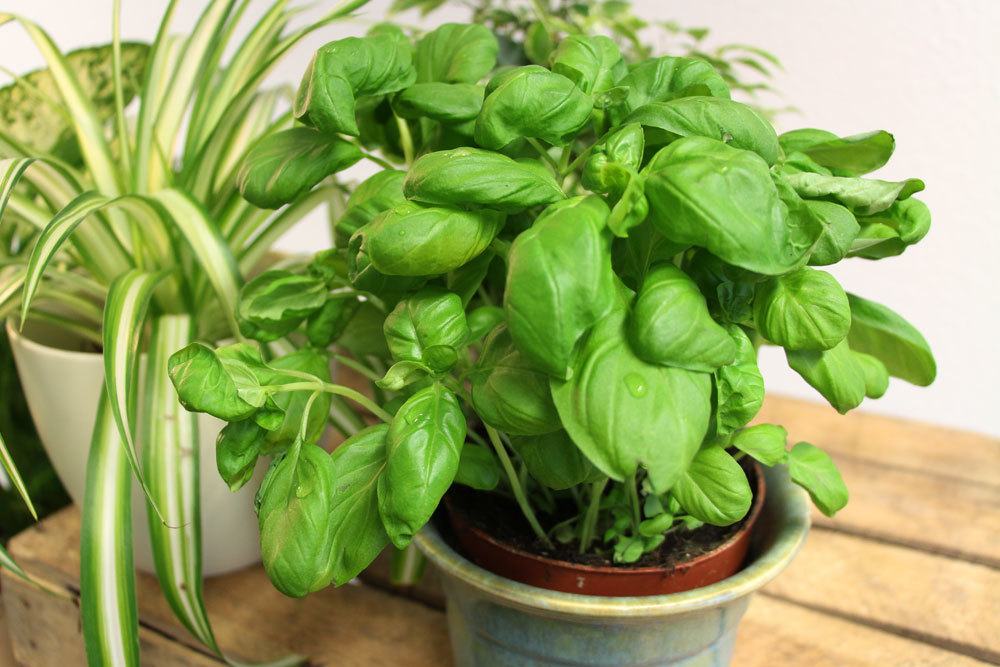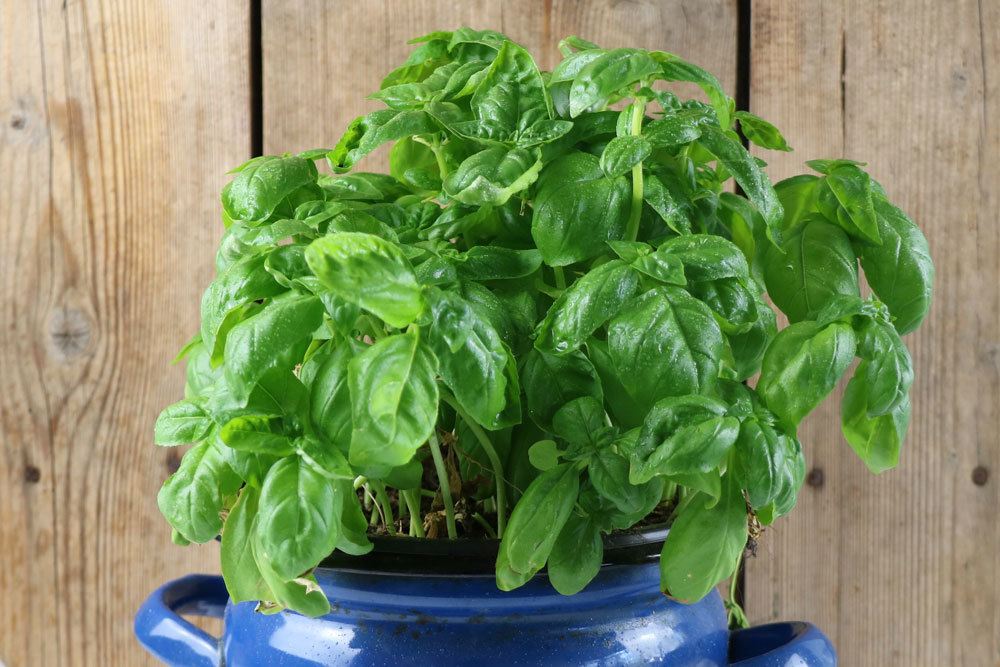The pretty flowering basil is one of the herbs thanks to its seasoning power. Therefore, it is automatically assumed that basil requires nutrient-poor soil. But will its roots find necessary nutrients in it? Probably not.
- Basil needs a lot of nutrients as a heavy grower, lean herb soil is unsuitable
- a consistently loose, permeable soil with a lot of nutrients is optimal
- enrich the soil with compost and fertilize it regularly with organic fertilizer, if necessary loosen it with sand and perlite
- in the pot, compost-based potting soil and regular topdressing with organic liquid fertilizer is recommended
- only for sowing basil seeds is nutrient-poor growing soil more suitable
Contents
Highly nutritious – basil
Unlike other types of herbs that thrive better in very lean soil, basil, scientifically Ocimum basilicum, needs a lot of nutrients. So many, in fact, that it is counted among the group of so-called heavy feeders. It is happy with a nutrient-rich and humus-rich soil from the beginning. However, after the end of the previous year’s season, garden beds are more or less depleted. That is why the soil must be improved with mature compost before planting in May, preferably a month before.
Tip: Before planting, loosen the soil and remove all weeds so that they do not later steal nutrients from the kitchen herb.
Substrate for pot culture
In the pot, the king herb, as this plant is also called, is best rooted in potting soil on the basis of compost. If you have bought a pot of herbs in stores, the potting soil is usually quite depleted. Repot basil soon into nutrient-rich soil. Also make sure that there are no more than 5-10 shoots per pot. If necessary, divide the contents between two or more pots.
Continuously fertilize the soil
A starting fertilization, as rich as it is, is never enough to meet the demands of this herb for the entire growing season. Since from sowing to flowering necessary nutrients must not be lacking, it is necessary to continuously re-fertilize.
- fertilize the bed from May to September
- weekly with compost
- alternatively with horn shavings
- granulated cattle manure is also optimal (if necessary additionally)
- in the pot do not fertilize for 4-6 weeks after planting
- after that fertilize weekly
- with an organic liquid fertilizer
- in the bed and pot do not use artificial fertilizers
Tip: Basil herb is also happy with a thin layer of coffee grounds. This natural fertilizer provides nitrogen and keeps slugs away. It should be available free of charge in almost every household.

Other quality characteristics of the soil
The soil for basil must be loose and permeable, so that waterlogging can not form. If it does not have this quality, its structure must be optimized with sand or perlite before planting or direct sowing. Then rainwater and too much watering can drain away more quickly. The ideal pH for this herb is 6.5 to 7.5.
Growing soil for sowing.
Only for sowing you can and should make an exception. In nutrient-poor growing soil, the royal herb germinates reliably and remains healthy. But as soon as the plantlets have formed a few pairs of leaves, they need to get necessary nutrients. Then basil can either be planted out in the garden or must get a new pot and new soil
Can I use herbal soil for basil?
No. Herbal soil is a special mixture with few nutrients. It is ideal for herbs that require lean substrate. This highly nutritious herb would wither in it.
Will basil grow in an herb spiral?
Yes. However, you should give this herb a place at the top or at least in the middle of the spiral so that it gets enough sun and no wet roots. You must also not forget to use nutrient-rich substrate in its place, and then to fertilize it specifically and regularly.
Why should I fertilize the substrate not mineral?
Basil herb is usually planted not as a pure flower, but as a culinary herb. Since its leaves are eaten by us, they should be of BIO quality. This implies that the herb grows in a substrate that is supplied only with a natural fertilizer.


